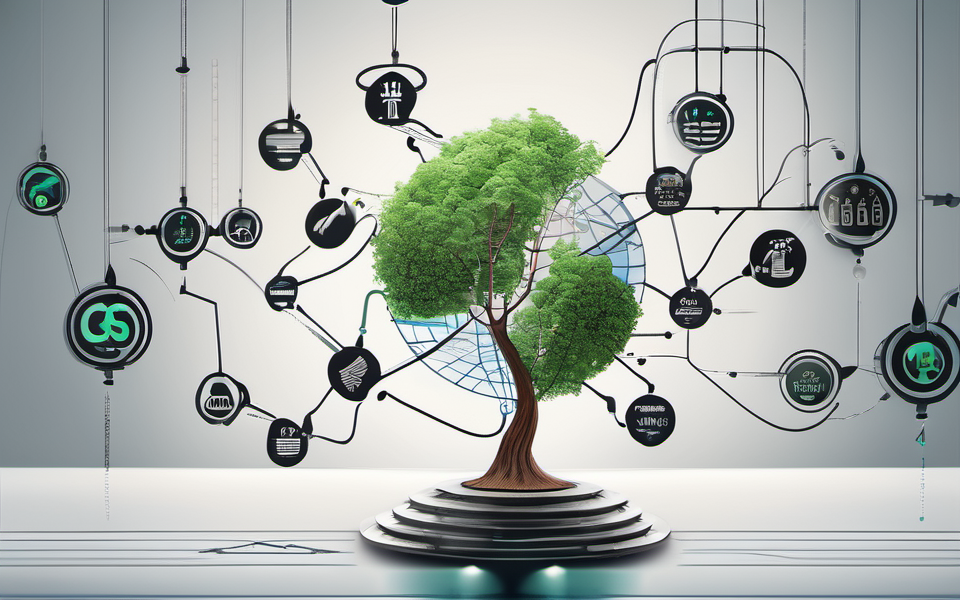Imagine a world where technological advancements skyrocket, but progress comes at a cost – the cost of unchecked innovation, jeopardizing our environment and social fabric. This isn’t a dystopian fiction, but a stark reality we face today. As technology transforms our lives at a rapid pace, we need a balance – a harmony between innovation and regulation that fosters growth and sustainability.
Striking the Right Balance: Innovation and Regulation for a Better Future
We are in the midst of a technological revolution, fueled by breakthroughs in AI, robotics, biotech, and beyond. This dynamism promises a brighter future – increased efficiency, new solutions for global challenges, and unprecedented levels of connectivity. But this trajectory also comes with significant potential risks to our society, environment, and economy. Think about it:
- Data privacy: Imagine your most intimate details readily available to anyone.
- Job displacement: What happens when AI surpasses human abilities in various jobs?
- Ethical dilemmas: Should autonomous weapons systems make life or death decisions?
We need to move beyond the simplistic “innovation vs. regulation” debate. The future is not about picking sides – it’s about finding a synergy. This is where a balanced approach comes in – embracing innovation while acknowledging its potential downsides and proactively mitigating them with intelligent regulation.
The Essential Role of Regulation: Navigating the Uncharted Territories of Innovation
Regulation isn’t about stifling creativity – it’s about setting guidelines to ensure responsible innovation. Imagine a skyscraper without a blueprint. It’s chaos – a risk of collapse. Regulation acts as that blueprint, guiding innovation towards a more sustainable and ethical direction. Here’s how:
Safeguarding the Digital Age: Privacy and Data Protection
The digital age has empowered us, but it’s also raised concerns about privacy and data security. Imagine the ramifications of sensitive data falling into the wrong hands, causing harm and exploitation. This is where regulation steps in – laws and guidelines like GDPR (General Data Protection Regulation) empower individuals to control their data, promoting responsible data management practices.
Mitigating Job Displacement and Embracing a Future of Work
AI is automating tasks and impacting various industries. Fear of job displacement is valid, but regulation can play a pivotal role in creating a future of work where humans and AI work collaboratively. Imagine skills development programs supported by government funding, allowing workers to adapt to the changing demands of the job market. Regulation can help ensure a smoother transition and minimize societal upheaval.
Addressing Ethical Concerns and Setting Boundaries for AI
AI’s capabilities raise critical ethical dilemmas, especially in areas like autonomous weapons systems. We must engage in deep, societal conversations about the ethical boundaries of AI, establishing principles for its development and deployment. Regulation acts as a safeguard, preventing misuse and ensuring that AI aligns with human values.
The Case for Sustainable Innovation : A Forward-Thinking Approach to Growth
Sustainable innovation goes beyond technological advancement; it encompasses social responsibility, environmental awareness, and long-term economic viability. It’s about developing solutions that not only drive progress but also protect the future. Imagine cities designed with intelligent infrastructure – efficient transportation systems, sustainable energy solutions, and minimized carbon footprints.
A Call for Collaborative Innovation
Governments, businesses, and citizens all have roles to play in shaping sustainable innovation. Imagine government incentives for companies investing in clean energy technologies. Think about businesses partnering with research institutions to develop solutions for pressing global issues. And envision a global movement for environmentally responsible consumption – consumers demanding sustainable products.
Beyond Profits: Building a World Beyond Sustainability
Sustainability isn’t just about saving the environment. It’s also about equitable access to resources and technology, building a world where everyone can thrive. Imagine AI applications deployed to address issues like climate change, improve healthcare access in underprivileged communities, and foster economic empowerment.
Key Takeaways
Innovation and regulation are not adversaries, but partners in shaping a prosperous and sustainable future. Here’s the key takeaway:
- Responsible Innovation: We must embrace innovation while mitigating its potential risks through robust regulation.
- Sustainable Development: Innovation needs to be directed towards creating a future where everyone thrives.
- Collaboration is Key: Governments, businesses, and citizens need to work together to create a sustainable innovation ecosystem.
The future is not a fixed destination – it’s a path we co-create. By balancing innovation and regulation responsibly, we can harness the power of technology for the greater good and leave a lasting positive impact on generations to come.









